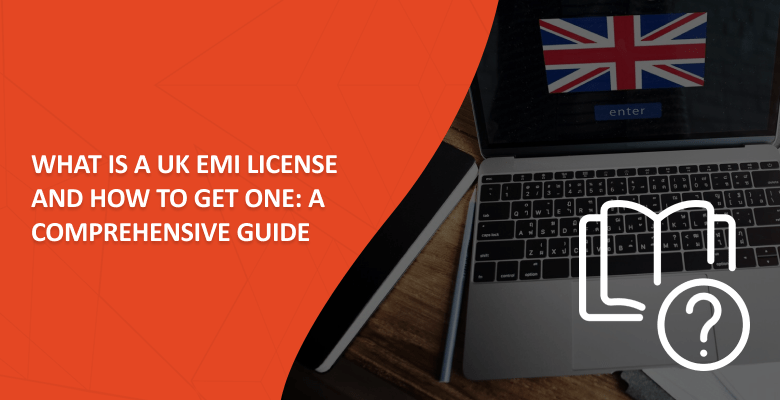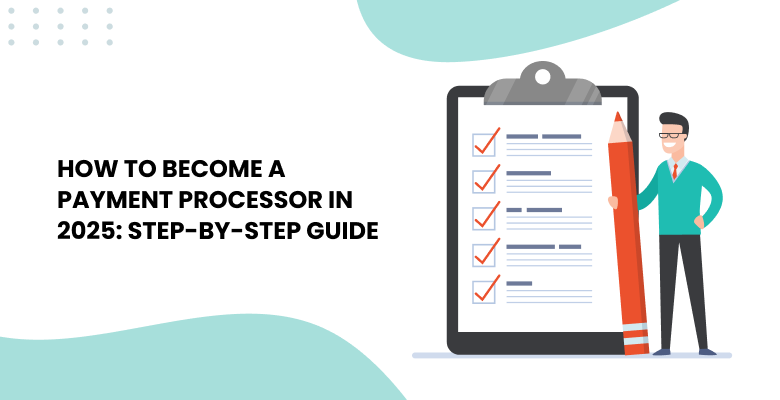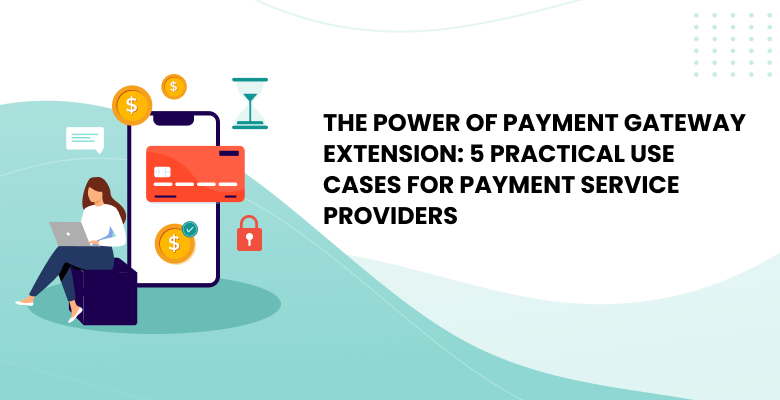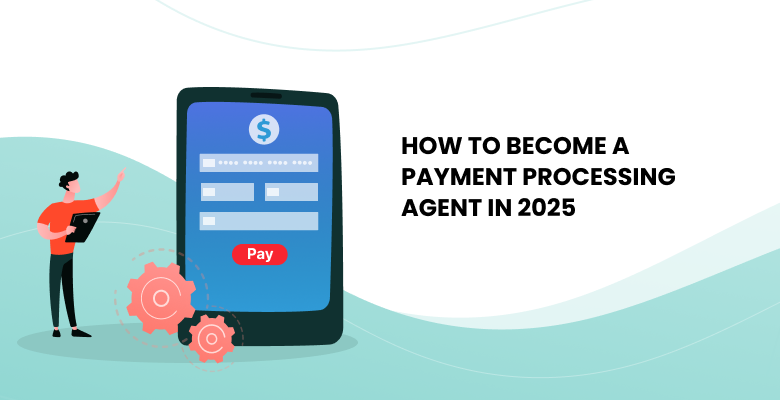
- What is E-Money?
- What is a UK E-Money License?
- Who Needs an EMI License?
- Benefits of Obtaining an E-Money Institution License
- Key Requirements for Obtaining the License
- Step-by-Step Guide on How to Obtain an E-Money License in the UK
- Regulatory Compliance and Standards
- How to Enhance Your Payment Solution With Advanced Technologies and Integrations
- How Much is the E-Money License in the UK?
- How Long Does it Take to Get an EMI License in the UK?
- Is an EMI a PSP?
- How Does the E-Money Institution License Differ from Other Financial Licenses?
In the rapidly evolving field of finance and technology, getting licenses is crucial for businesses venturing into the world of electronic money. This comprehensive guide explores the EMI License UK, shedding light on what it is, its benefits, and the process of obtaining it.
What is E-Money?
This term, often referred to as e-money, embodies value in a digital format, is stored electronically, and is utilized for an array of financial transactions. Acting as a digital surrogate for physical currency, e-money streamlines online purchases, financial dealings, and money transfers. Its presence is solely within the digital realm, with storage alternatives accessible through digital wallets or accounts, frequently accessible via computers, smartphones, or other electronic devices.
Examples of e-money are wide-ranging and encompass:
- Prepaid cards: These come in both physical and virtual forms, preloaded with a specific monetary value that can be expended for purchases until the balance is depleted.
- Mobile wallets: Utilized through mobile payment applications such as PayPal, Apple Pay, Google Pay, and Samsung Pay.
- Cryptocurrencies: Digital currencies like Bitcoin, Ethereum, and various others serve as variants of e-money, permitting users to engage in digital transactions without necessitating traditional banking institutions or intermediaries.
- Virtual currencies in online gaming and virtual realms: Within online gaming environments, players commonly employ virtual currencies, such as V-Bucks in Fortnite, for the acquisition of in-game items.
What is a UK E-Money License?
The Financial Conduct Authority grants an electronic money license to qualifying companies to create and handle e-money for digital transactions. Electronic money represents a digital form of cash that is stored and transacted electronically. It ensures that institutions comply with stringent standards, fostering consumer trust and financial stability.
Answering the question “What is a UK e-money license” let’s see several capabilities it grants businesses:
- Entities can generate e-money.
- The license permits companies to offer services, including conducting e-payment transactions, transferring money, and overseeing payment accounts.
- With the E-Money Regulations and the EU’s PSD2, a firm with a UK e-money license can extend its services throughout the European Economic Area (EEA). However, Brexit may influence this aspect.
- Firms with this license must comply with stringent FCA guidelines, encompassing consumer protection, anti-money laundering (AML) protocols, and maintaining financial stability.
Who Needs an EMI License?
EMI licenses are intended to regulate and supervise entities that issue electronic money and provide related financial services. Therefore, obtaining an EMI License is a must-have for Payment Service Providers (PSPs) that offer services like electronic wallets, prepaid cards, and other digital payment solutions that fall under the category of Electronic Money Institutions. Also, it is much needed for other Financial Technology (Fintech) companies that provide electronic payment services. Basically, any entity intending to provide any e-money services needs to obtain a License. This applies to larger entities seeking AEMI status and smaller entities opting for registration as a SEMI. The FCA oversees and regulates the issuance of EMI Licenses to ensure that institutions comply with the standards and regulations.
Businesses that engage in activities involving the issuance, management, and distribution of electronic money need a license. This includes digital wallets, prepaid cards, and other forms that can be used for making transactions. By obtaining an EMI License, these entities demonstrate their commitment to regulatory compliance and contribute to the overall stability and trustworthiness of the financial system.
Benefits of Obtaining an E-Money Institution License
Getting an EMI License UK comes with several benefits, providing institutions with credibility and market access.
Reliability and Trust
Holding the UK payment institution license enhances reliability in the eyes of consumers. The license signifies regulatory approval, fostering trust among customers who feel more secure using the services of a licensed institution.
Compliance with regulatory requirements
License holders are required to comply with regulatory standards set by the FCA. This ensures institutions operate within a well-defined legal and regulatory framework, promoting transparency and accountability.
Market Access
The EMI License grants institutions access to a broader market, allowing them to expand their range of services. This can include providing services to a larger customer base and offering innovative financial products.
Consumer Protection
EMI License UK holders are obligated to take measures to safeguard funds, providing an added layer of protection for e-money users. This commitment to protecting customers’ financial interests contributes to a safer and more reliable financial ecosystem.
Competitive Advantage
In a competitive field, having an electronic money institution license UK can set institutions apart from non-licensed entities. It demonstrates a commitment to regulatory compliance and provides a competitive edge in attracting customers and partners.
Operational Confidence
The process of obtaining an EMI License requires institutions to establish robust governance arrangements, internal controls, and risk management procedures. This not only ensures compliance but also fosters efficient and secure business operations.
Innovation Opportunities
EMI License holders are often at the forefront of financial innovation. The license allows institutions to explore and implement new technologies and services.
Financial Stability
The requirement for holding adequate initial capital ensures that EMI License holders have the financial capacity to operate responsibly.
Legal Recognition
The EMI License provides legal recognition to institutions, reinforcing their status as authorized providers of electronic money services. This legal standing is essential for entering into agreements, partnerships, and collaborations within the financial sector.
In conclusion, obtaining an EMI License in the UK is not just a regulatory requirement but a strategic move that brings numerous benefits. From building trust among consumers to accessing new markets and fostering innovation, the EMI License plays a pivotal role in shaping the success and sustainability of electronic money institutions.
Key Requirements for Obtaining the License
The process of obtaining a License involves meeting specific requirements set by the FCA. These requirements vary for AEMIs and SEMIs.
For Authorized Electronic Money Institutions (AEMIs)
- Adequate Initial Capital: AEMIs must demonstrate that they possess sufficient initial capital to establish and operate their electronic money services.
- Robust Governance Arrangements, Internal Controls, and Risk Management Procedures: AEMIs must establish and maintain robust governance structures, internal controls, and risk management procedures. This includes implementing systems that effectively identify, assess and manage risks associated with electronic money services.
- Fit and Proper Individuals: Individuals with qualifying holdings in the institution must be fit and proper. This involves an assessment of their integrity, competence, and financial soundness. This requirement applies to directors and persons responsible for managing e-money and payment services.
- Compliance with Money Laundering Regulations (MLRs): AEMIs must comply with the Money Laundering Regulations (MLRs) to prevent and detect money laundering and terrorist financing activities. This involves implementing robust anti-money laundering (AML) measures.
- Safeguarding Measures: AEMIs must take adequate measures to safeguard e-money holders’ funds. This includes implementing secure systems to protect the funds received in exchange for electronic money services.
- Effective Supervision: AEMIs should not prevent effective supervision by the FCA, especially if there are close links to another person. Foreign laws should not hinder the FCA’s ability to supervise the business if the links extend beyond the UK.
For Small Electronic Money Institutions (SEMIs)
- Initial Capital and Transaction Limits: SEMIs must not generate an average outstanding e-money of more than €5 million. Additionally, monthly average payment transactions in 12 months must not exceed €3 million.
- Fit and Proper Individuals: Like AEMIs, SEMIs must ensure that individuals with qualifying holdings are fit and proper. This applies to directors and persons responsible for managing e-money and payment services.
- Compliance with MLRs: SEMIs must comply with the Money Laundering Regulations (MLRs) to address money laundering risks associated with their operations.
- Safeguarding Measures: SEMIs must implement measures to safeguard funds received in exchange for e-money users’ funds. This is crucial for the protection of customer funds.
- Effective Supervision: Similar to AEMIs, SEMIs should not hinder effective supervision by the FCA, especially if there are close links to another person, even if located outside the UK.
Meeting these requirements and providing the necessary supporting material during the application process is essential for obtaining and maintaining an EMI License in the UK. The FCA assesses the applications thoroughly to ensure that license holders operate in a manner that is secure, compliant, and protective of consumer interests.
Step-by-Step Guide on How to Obtain an E-Money License in the UK
Obtaining an Electronic Money Institution (EMI) License in the United Kingdom involves a structured process outlined by the Financial Conduct Authority (FCA). Here is a step-by-step guide on how to obtain an E-Money License UK:
Step 1: Preparation
Develop a comprehensive business plan outlining the nature of the electronic money services you intend to provide. This should include a clear program of operations and financial information.
Step 2: Submission
Submit your application through the FCA’s Connect system, which is the online platform for regulatory applications. Ensure that you have all the necessary information and supporting material ready.
Step 3: Supporting Material
Include detailed information in your application, covering various aspects of your business. This may include:
- Program of operations and business plan, including financial information.
- Details about the people responsible for your e-money services, including their qualifications.
- Information about anyone with a qualifying holding in your firm.
- Control mechanisms to meet obligations under the Money Laundering Regulations (MLRs).
- Initial capital at the level required by regulations and calculation of ongoing capital requirements.
- Measures to safeguard funds received in exchange for e-money users’ funds.
- Governance arrangements, internal controls, and risk management procedures.
- Procedures for incident reporting, managing sensitive payment data, business continuity, and statistical data collection.
- Security policies and customer complaint policies related to security.
- Information on professional indemnity insurance or comparable guarantees if providing Account Information Services (AIS) and/or Payment Initiation Services (PIS).
- Details on outsourcing arrangements, if applicable.
- Plans for using agents and branches, including on-site and off-site checks.
Follow Guidance:
- Follow the FCA’s guidance on preparing your application and ensure that you submit all the required supporting material accurately.
Regulatory Compliance and Standards
Regulatory compliance and adherence to standards are critical aspects of obtaining and maintaining an Electronic Money Institution (EMI) License in the United Kingdom. The Financial Conduct Authority (FCA) sets specific requirements to ensure that electronic money institutions operate securely, transparently, and in accordance with legal and regulatory standards. Here is an overview of the key elements related to regulatory compliance and standards for E-Money Institutions:
Adherence to Regulatory Standards
EMIs must adhere to a comprehensive set of regulatory standards established by the FCA. These standards cover various aspects of the institution’s operations, including financial stability, governance, risk management, and consumer protection.
Money Laundering Regulations (MLRs) Compliance
Compliance with the Money Laundering Regulations (MLRs) is a fundamental requirement. EMIs must implement robust anti-money laundering (AML) measures to prevent and detect money laundering and terrorist financing activities. This involves customer due diligence, monitoring transactions, and reporting suspicious activities.
How to Enhance Your Payment Solution With Advanced Technologies and Integrations
Although obtaining is a crucial step to legally operating in the digital payments realm, it’s also vital to stay ahead of the curve in a highly competitive fintech environment. Fortunately, it doesn’t necessarily require a complex and costly development process. To streamline your success journey, you can embrace a ready-to-use white label payment gateway solution.
Akurateco is a reputable white-label payment gateway provider. We offer PCI DSS Level 1 payment software with advanced features, including intelligent payment routing and cascading, decline reason management, optimized checkout, automated merchant onboarding, and many more. Our platform also boasts integrations with over 330 banks and payment providers worldwide, encompassing global and local entities.
Businesses leveraging white-label Akurateco can completely rebrand the system and market it as their own. It eliminates the hassle of spending plenty of time and money developing one from scratch or updating an outdated payment system.
How Much is the E-Money License in the UK?
The costs associated with obtaining an EMI License vary. It is recommended to consult the FCA’s official fee schedule for accurate and up-to-date information.
How Long Does it Take to Get an EMI License in the UK?
The duration of the application process varies, but applicants should be prepared for a thorough evaluation. Factors such as the completeness of the application and the FCA workload can influence the timeline.
Is an EMI a PSP?
While Electronic Money Institutions share similarities with Payment Service Providers (PSPs), they differ in their core functions. EMIs focus on the issuance and management of electronic money, whereas PSPs cover a broader spectrum of payment services.
How Does the E-Money Institution License Differ from Other Financial Licenses?
The EMI License is distinct from other financial licenses due to its specific focus on electronic money services. Understanding these differences is crucial for businesses seeking the most relevant regulatory authorization for their operations.
In conclusion, obtaining a UK EMI License is a significant milestone for entities venturing into the realm of electronic money. By following the comprehensive guide and meeting the outlined requirements, businesses can navigate the regulatory landscape successfully, ensuring compliance, consumer protection, and market access.






